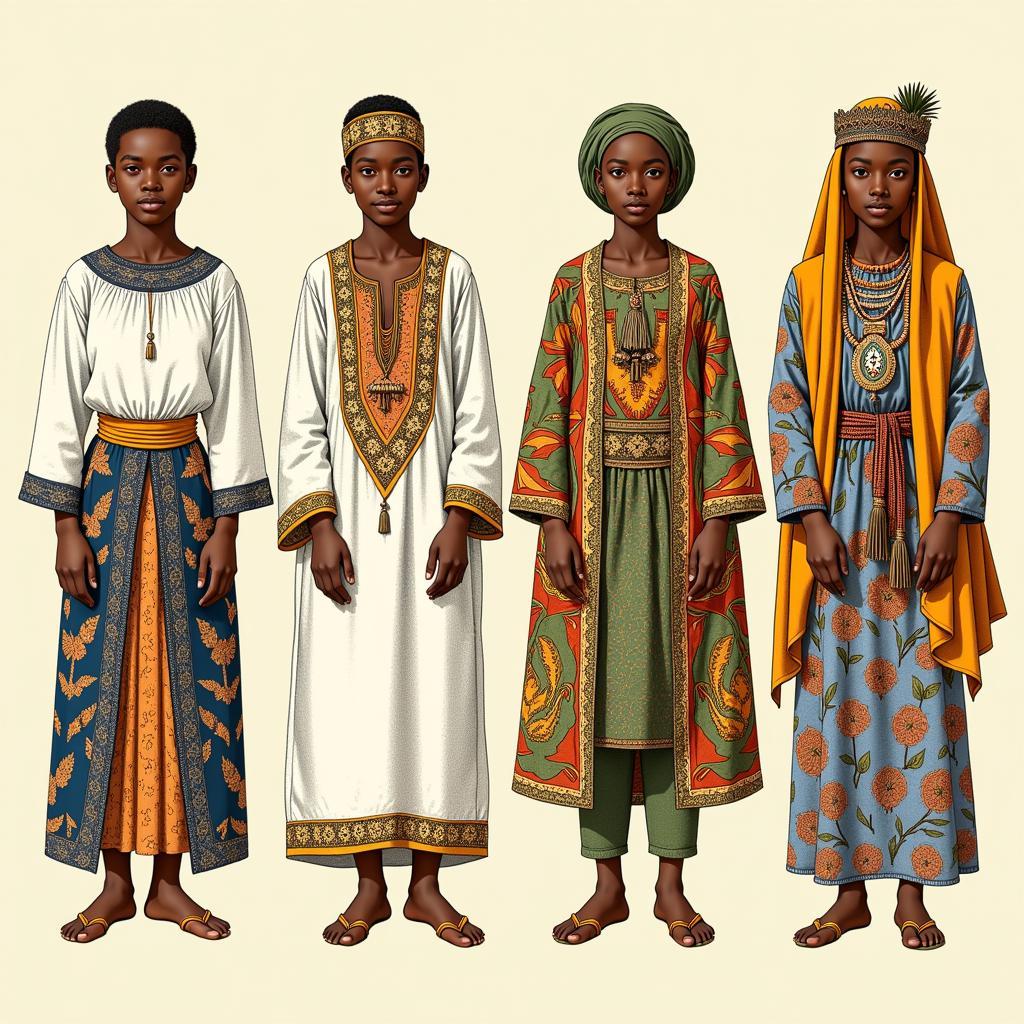African Baby Food: A Guide for Parents
African Baby Food is a growing category of food options that are designed to provide the best nutritional value for infants and toddlers across the continent. These products are specifically formulated to meet the unique needs of African babies, who often have different dietary requirements than babies in other parts of the world. In this article, we will delve into the various aspects of African baby food, from its cultural significance to the key ingredients and the benefits it offers to young children.
Understanding African Baby Food
African baby food is not just about providing sustenance; it is an integral part of the cultural heritage and traditions of the continent. The practices surrounding infant feeding vary significantly across different regions, but there are certain common threads that underscore the importance of tradition and community.
The Role of Tradition and Culture
“Traditional African infant feeding practices are deeply rooted in the cultural context,” explains Dr. Amina Hassan, a renowned pediatrician and nutritionist. “From the use of breast milk as the primary source of nutrition to the introduction of complementary foods, there’s a strong emphasis on natural ingredients and the transmission of knowledge across generations.”
For example, in many African communities, the introduction of solid foods is often marked by rituals and ceremonies, reflecting the importance of this milestone in a child’s life. This tradition serves not only to celebrate the baby’s growth but also to instill a sense of community and shared values.
Key Ingredients and Nutritional Considerations
The ingredients used in African baby food are chosen with great care to ensure optimal nutritional value and cater to the specific needs of African babies.
Here are some common ingredients found in African baby food:
- Breast milk: As the primary source of nutrition for infants, breast milk is highly valued and encouraged for as long as possible.
- Fonio: This ancient grain is rich in iron, calcium, and protein, making it a valuable addition to baby food.
- Millet: Another popular grain in Africa, millet is a good source of fiber, vitamins, and minerals.
- Sorghum: This gluten-free grain is a good source of iron and zinc and is often used in baby food porridge.
- Plantain: This versatile fruit is rich in potassium, vitamin B6, and fiber.
- Sweet potatoes: These nutrient-rich tubers are a good source of vitamin A, vitamin C, and fiber.
- Pumpkins: Pumpkins are packed with vitamins, minerals, and antioxidants.
- Beans: A good source of protein, fiber, and iron, beans are commonly included in African baby food.
- Peanuts: Peanuts are a rich source of protein, healthy fats, and vitamins.
The specific types of ingredients used can vary depending on the region and the availability of local produce. The emphasis remains on providing a balanced diet that meets the nutritional requirements of African babies.
Benefits of African Baby Food
Beyond its cultural significance, African baby food offers several key benefits for infants and toddlers.
Here are some of the advantages:
- High nutritional value: African baby food is formulated to provide a balanced diet that is rich in essential vitamins, minerals, and nutrients that support healthy growth and development.
- Cultural relevance: African baby food is often prepared using traditional recipes and ingredients that have been passed down through generations, making it culturally relevant and familiar to babies.
- Dietary diversity: African baby food incorporates a wide variety of local ingredients, promoting dietary diversity and helping babies develop a taste for a range of healthy foods.
- Accessibility: African baby food is often affordable and readily available, making it accessible to families across the continent.
Choosing the Right African Baby Food
With the increasing demand for African baby food, there are now a variety of options available on the market. When choosing the right product, it’s important to consider factors such as:
- Age appropriateness: Look for products that are specifically designed for the appropriate age group, as different infants have different nutritional requirements.
- Ingredient list: Choose products with wholesome ingredients that are free from artificial colors, flavors, and preservatives.
- Brand reputation: Opt for brands that have a good reputation for quality and safety.
- Packaging: Look for packaging that is convenient and easy to use, especially for on-the-go feeding.
Frequently Asked Questions
What are the best African baby food brands?
There are several reputable African baby food brands on the market, including African grey parrot baby food, african black soap for baby eczema, and others. It’s important to research and choose a brand that aligns with your family’s preferences and values.
When should I start introducing African baby food to my baby?
The introduction of solid foods should be guided by your baby’s individual needs and developmental milestones. Consult with your pediatrician for personalized advice.
Can I make my own African baby food?
Absolutely! There are many traditional recipes for African baby food that you can easily prepare at home using fresh, local ingredients.
Conclusion
African baby food is not just a product; it is a reflection of the continent’s rich cultural heritage and a testament to the importance of providing nutritious food for infants and toddlers. As the demand for this type of food continues to grow, it is crucial to choose products that are not only nutritious but also culturally relevant and accessible to families across Africa. By incorporating traditional ingredients and practices, African baby food plays a vital role in shaping the health and well-being of the continent’s youngest generation.
Remember, if you have any questions or need further guidance, please don’t hesitate to contact us. We are here to support you on your journey to providing the best nutrition for your little one!
Contact Us:
+255768904061, [email protected]
Mbarali DC Mawindi, Kangaga, Tanzania.


